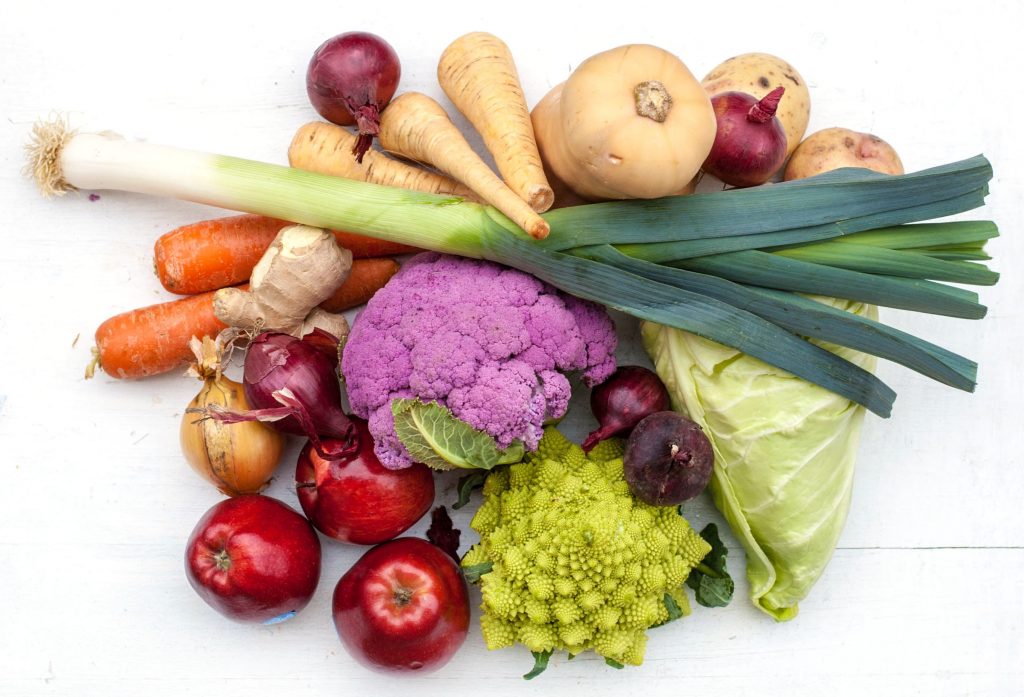How to eat your way to a healthy lifestyle

 When we talk about health, many of us focus on being physical. Heading into any new year we see ‘more frequent exercise’ as one of the top goals, complete with a spike in gym memberships and class attendance. So why don’t we see results? The truth is that exercise is only a small part of the equation when it comes to living a healthy life and taking care of our bodies. One of the more significant factors to consider is nutrition.
When we talk about health, many of us focus on being physical. Heading into any new year we see ‘more frequent exercise’ as one of the top goals, complete with a spike in gym memberships and class attendance. So why don’t we see results? The truth is that exercise is only a small part of the equation when it comes to living a healthy life and taking care of our bodies. One of the more significant factors to consider is nutrition.
“Our health is determined by many factors,” said Melissa Murray, a dietitian at St. Joseph’s Health Centre, “including sleep, exercise, social interactions, stress and nutrition. We make many decisions on what to eat every day, which has a huge impact on how we feel, our ability to function at work and how much energy we have.”
Food fuels us; it creates energy that our bodies need for eight-plus hour work days and extracurricular activities. Just like a bad night’s sleep can limit our ability to think clearly at work the next day, not eating the right food can slow us down and make us mentally and physically exhausted. This nutrition month, we asked Melissa for nutrition tips that will help you feel your healthiest.
- Start your day right by eating breakfast. Eating within an hour of waking is a great way to signal to your body that the day has started, refuel after fasting overnight and kickstart your metabolism. Eating substantial foods like whole-grain toast or oats with protein such as eggs or Greek yogurt will provide fuel to get your body ready for the day and keep you full until you eat again. Just as a car doesn’t run as efficiently on empty, our bodies need energy to move.
- Eat more fruits and vegetables. We’ve been told this since we were kids and yet it’s difficult for many of us to reach the daily recommended servings (7-10 a day for adults). Melissa offers some tips: “Bring a couple pieces of fruit and some cut up vegetables to snack on at work when you get hungry, add kale or spinach to smoothies and if you’re making a multi-food dish – pizza, pasta, omelettes, soups or stews – add extra veggies for nutritional value.” Melissa also recommends aiming for at least one dark green and one orange vegetable a day.
- Cook from scratch. While processed foods may be convenient, they can also be full of additives, most of which are quite unhealthy like sodium, MSG, phosphate additives and colourings. Cooking from scratch means building a meal (or recipe) yourself, which gives you control so you can make sure you’re eating healthy, wholesome, good food. Visit your local farmers markets or try a new food a week to keep it exciting and fresh. For easy, healthy recipe ideas, visit cookspiration.com, a Dietitians of Canada website.
- Use the small plate trick. Plates have increased in size by as much as 30 per cent over the past few decades. “We’re visual eaters,” said Melissa, “so when we see a large plate we think that we need to fill it. Using a smaller plate will make us feel satisfied that we’re eating enough without overdoing it.”
- Drink water. Sometimes when we feel hungry it’s really just our bodies telling us we need water. When you get that peckish feeling in the afternoon, try having a glass of water first and see if that helps. You can also have a glass of water before eating a meal to help fill you up so you eat what you physically need, rather than what you feel you should have. The goal for most people is eight cups a day, unless your doctor has told you otherwise.
Take the fight out of food is this nutrition month’s theme which means setting yourself up for success by preparing foods in advance, creating a meal plan for the week to avoid last minute temptations and obtaining your nutrition information from reputable sources like dietitians. With proper planning, you can ensure your body is receiving what it needs to function at its best and stay healthy.
